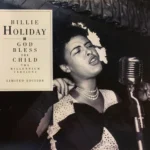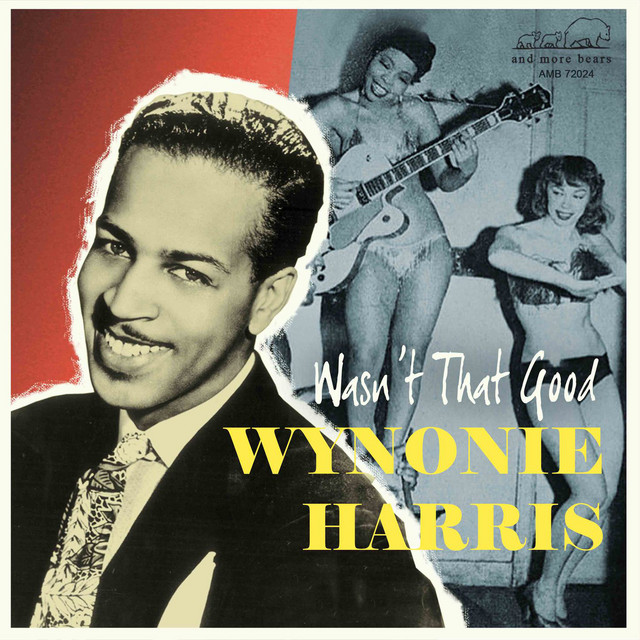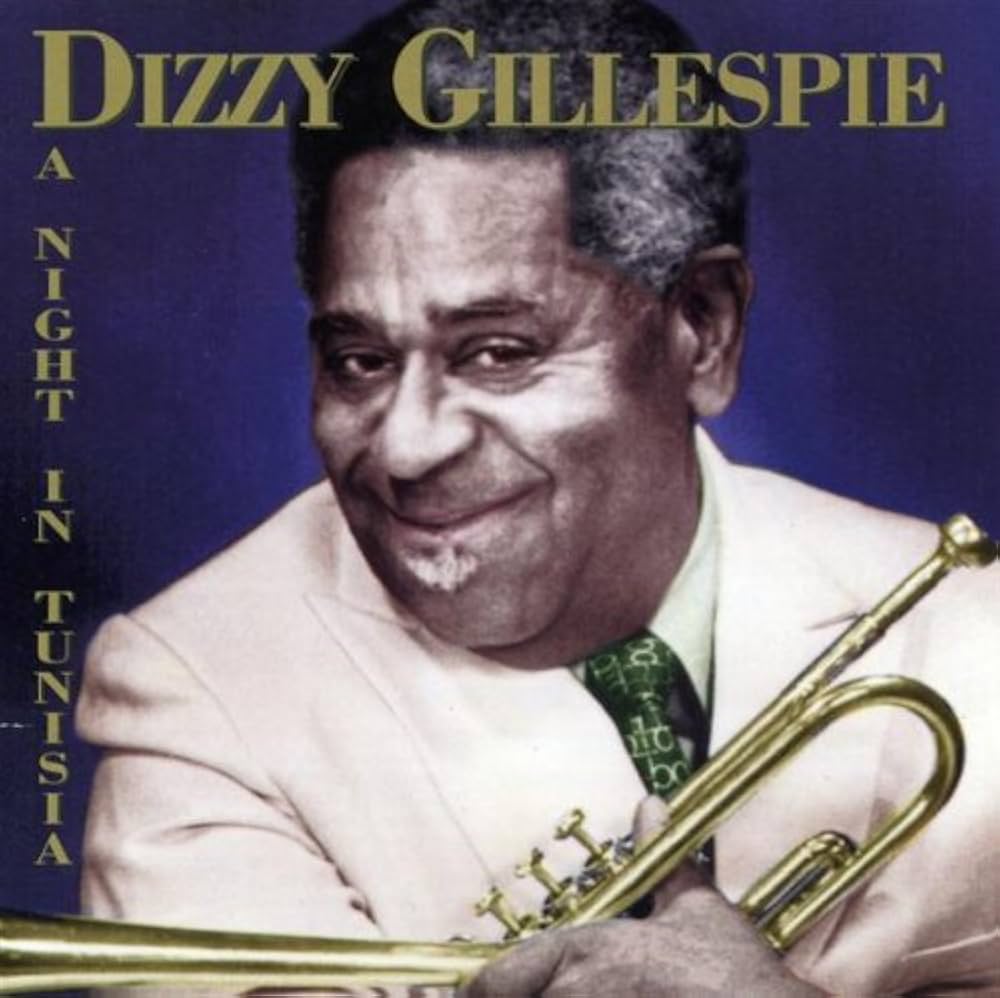 In 1941, Billie Holiday released a song that would become one of the most enduring and poignant entries in the American songbook: “God Bless the Child.” Co-written with Arthur Herzog Jr., the song is as much a reflection of Holiday’s personal struggles as it is a universal meditation on independence, self-reliance, and the hardships of life. While Billie Holiday had already made a name for herself with her emotive voice and ability to convey deep feeling, “God Bless the Child” elevated her artistry to a new level, blending jazz, blues, and folk sensibilities into a timeless anthem that resonates to this day.
In 1941, Billie Holiday released a song that would become one of the most enduring and poignant entries in the American songbook: “God Bless the Child.” Co-written with Arthur Herzog Jr., the song is as much a reflection of Holiday’s personal struggles as it is a universal meditation on independence, self-reliance, and the hardships of life. While Billie Holiday had already made a name for herself with her emotive voice and ability to convey deep feeling, “God Bless the Child” elevated her artistry to a new level, blending jazz, blues, and folk sensibilities into a timeless anthem that resonates to this day.
Billie Holiday: The Lady Sings Her Truth
Billie Holiday, born Eleanora Fagan in 1915, had already endured a life full of adversity by the time she recorded “God Bless the Child.” Her early years were marked by poverty, exploitation, and the kind of hardships that informed the emotional depth of her music. Holiday’s voice was distinctive—not technically perfect in the classical sense, but imbued with a raw, human expressiveness that made every song she performed feel intensely personal.
By the late 1930s and early 1940s, Holiday had achieved national recognition. Her collaborations with Teddy Wilson, Count Basie, and Benny Goodman showcased her ability to bridge swing, blues, and jazz. Yet, despite her success, Holiday faced systemic racism, financial inequities, and personal challenges that deeply influenced her songwriting. “God Bless the Child” emerges directly from this intersection of personal experience and social commentary, making it one of her most autobiographical and socially resonant works.
The Origins of the Song
The story behind “God Bless the Child” is as compelling as the song itself. Holiday reportedly wrote the song after an argument with her mother over money. Her mother had told her, “God bless the child that’s got his own,” a phrase that stuck with Holiday and became the lyrical foundation for the song. Collaborating with Arthur Herzog Jr., Holiday transformed this personal remark into a meditation on financial independence and self-sufficiency, using a simple yet profound message that would resonate across generations.
The lyrics of “God Bless the Child” are deceptively straightforward:
“God bless the child that’s got his own
That’s got his own.”
These lines reflect both a sense of pride and the harsh reality that self-reliance is often the only protection in a world filled with uncertainty. Holiday’s words speak to anyone who has struggled for autonomy or confronted societal inequities, giving the song a timeless, universal appeal.
Musical Structure and Innovation
Musically, “God Bless the Child” is rooted in jazz and blues traditions but incorporates subtle innovations that set it apart from other songs of the era. The melody is understated, allowing Holiday’s voice to carry the emotional weight. Her phrasing—deliberate, wavering, and often slightly behind the beat—adds tension and intimacy, drawing listeners into the story she tells.
The song’s chord progression is relatively simple, emphasizing minor and seventh chords that evoke a sense of melancholy and reflection. This harmonic simplicity allows Holiday’s vocal interpretation to shine. Unlike many contemporary swing or big band arrangements, “God Bless the Child” relies on space and nuance rather than orchestral grandeur, making it a deeply personal, almost confessional piece.
Instrumentally, the original recording features a restrained ensemble: piano, bass, and subtle percussion provide support without overpowering Holiday’s voice. This minimalism was revolutionary in its way, allowing the emotional resonance of the lyrics to take center stage. It’s a masterclass in restraint—showing that power in music doesn’t always come from volume or complexity but from intention and feeling.
Lyrical Themes: Independence and Struggle
The central theme of “God Bless the Child” is financial and personal independence. Holiday’s lyrics explore the tension between reliance on others and the self-sufficiency needed to survive in a harsh world. Lines such as:
“Them that’s got shall get
Them that’s not shall lose”
reflect a stark worldview shaped by personal experience. Holiday isn’t just commenting on human nature in the abstract; she’s sharing lessons learned from life’s inequities, poverty, and systemic prejudice.
Yet, the song is more than a critique; it’s also a celebration. The repeated refrain—“God bless the child that’s got his own”—becomes a mantra of empowerment. It’s an acknowledgment of hardship but also a recognition of strength, dignity, and self-reliance. Holiday’s delivery, simultaneously tender and assertive, transforms the song into a powerful anthem of autonomy, resonating with anyone who has had to navigate life’s challenges alone.
Billie Holiday’s Vocal Genius
Billie Holiday’s performance of “God Bless the Child” is a masterclass in vocal expression. She manipulates phrasing, timing, and dynamics to convey a spectrum of emotions—from vulnerability to defiance. Every note feels intentional, every pause meaningful. Unlike many singers of the era who focused on technical perfection, Holiday prioritized emotional truth, allowing listeners to feel the lived experience behind the lyrics.
Her voice fluctuates gently between fragility and strength, reflecting the duality at the heart of the song: the vulnerability of relying on oneself and the power that comes from doing so. This interplay of emotion and technique is what makes Holiday’s rendition timeless—it doesn’t just communicate the lyrics, it embodies them.
Cultural and Historical Impact
“God Bless the Child” was released during a time of profound social and economic upheaval. The early 1940s were marked by the looming pressures of World War II, racial segregation, and widespread economic disparity. Holiday’s song, though personal in origin, spoke to broader societal truths, making it both relatable and socially significant.
The track became a standard in jazz and popular music, covered by countless artists across genres. From jazz legends like Sarah Vaughan and Ella Fitzgerald to contemporary interpreters in blues, soul, and pop, the song’s influence is enduring. It’s more than a composition—it’s a cultural touchstone, a song that bridges generations while maintaining its original emotional potency.
Holiday’s articulation of financial independence and resilience also resonates within the context of African American experience, reflecting systemic challenges while offering a message of dignity and self-determination. The song’s ongoing relevance underscores the universality of its message.
Recording Legacy and Versions
The original 1941 recording of “God Bless the Child” is intimate and haunting, with subtle piano accompaniment and restrained bass lines that allow Holiday’s voice to shine. Over the decades, the song has been reinterpreted in countless ways. Jazz trios, orchestras, and contemporary artists have offered their own takes, each highlighting different facets of the song—its emotional vulnerability, its melodic sophistication, or its lyrical empowerment.
Yet, no rendition surpasses Holiday’s original in emotional authenticity. Her phrasing, tone, and timing are inextricably linked to her life story, making it difficult for any other artist to replicate the combination of technical skill and lived experience she brought to the recording. This authenticity is central to why the song continues to resonate more than 80 years after its creation.
The Song as a Personal Statement
“God Bless the Child” also serves as a deeply personal statement for Billie Holiday. It reflects her experiences with poverty, exploitation, and systemic injustice, while also revealing her resilience and dignity. The song is a declaration of self-worth: an acknowledgment that survival and independence are achievements in themselves, worthy of recognition and respect.
Holiday’s ability to transform personal struggle into universal truth is part of what makes her legacy so profound. “God Bless the Child” is not just a song; it is a message, a narrative, and an emotional journey that resonates because it is rooted in authenticity.
Enduring Influence
The influence of “God Bless the Child” extends far beyond jazz. Its themes of independence, resilience, and self-sufficiency have inspired generations of musicians, writers, and artists. The song has appeared in films, television programs, and cultural tributes, ensuring that its message continues to reach new audiences.
Moreover, the song’s musical style—minimalist, emotionally driven, and lyrically powerful—has informed countless approaches to vocal jazz and popular music. Holiday’s ability to convey complex emotion with sparse accompaniment set a precedent for artists seeking to balance technical proficiency with expressive storytelling.
Why the Song Matters Today
Even in the 21st century, “God Bless the Child” remains relevant. Its themes resonate in a world still grappling with inequality, personal struggle, and the pursuit of autonomy. Holiday’s message is clear: independence and self-reliance are vital, and dignity comes from recognizing and honoring one’s own worth.
The song’s enduring appeal lies in its simplicity and universality. It speaks to anyone who has faced adversity, felt overlooked, or had to carve their own path. Its melody, phrasing, and emotional resonance continue to captivate listeners, making it a timeless classic.
Final Reflections
Billie Holiday’s “God Bless the Child” is more than a song—it is a statement of resilience, an exploration of personal and social truths, and a testament to the enduring power of authentic musical expression. Recorded in 1941, it captures the essence of Holiday’s artistry: her ability to convey profound emotion through nuanced vocal phrasing, her talent for transforming personal experience into universal truths, and her courage to address social and economic realities through music.
The song’s influence is immeasurable, inspiring artists across genres and generations while remaining deeply moving to new listeners. Its themes of independence, self-worth, and perseverance continue to resonate, and its musical craftsmanship remains exemplary. “God Bless the Child” is a song that transcends time, culture, and circumstance—an immortal testament to Billie Holiday’s genius and humanity.
In celebrating “God Bless the Child,” we honor not only a musical masterpiece but also a life lived with courage, creativity, and unwavering emotional honesty. Billie Holiday gave the world a song that continues to speak, comfort, and inspire. Its brilliance lies in its truth, its simplicity, and its capacity to touch the human heart, making it one of the most enduring songs in American musical history.


